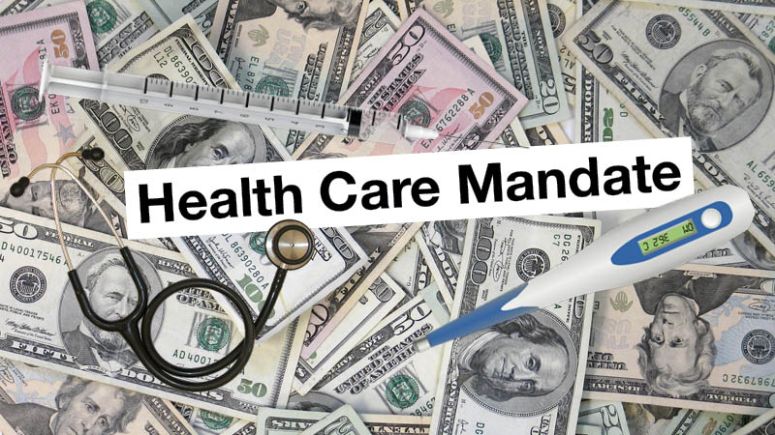Steve Bruns, MPP, Staff Writer, Brief Policy Perspectives

Senate Republicans announced that the Tax Cuts and Jobs Act, heralded as the first potential legislative achievement of the Trump era, will also include a repeal of the Affordable Care Act’s (ACA) individual mandate. Republican lawmakers cite public budgeting and political reasons for repealing the mandate’s tax penalty for Americans who choose to remain uninsured. The repeal would save the federal government $350 billion over the next ten years, paving the way for more generous tax cuts, and it would undo one of the more unpopular provisions of the ACA. However upon closer inspection, the consequences of removing the individual mandate would ultimately outweigh the relief that the act promises to provide. As has been the case with previous efforts to alter the ACA, repealing the mandate would increase the number of uninsured Americans, unduly burden the sick and poor with higher premiums and deductibles, and imperil the profits and solvency of insurers.
To offset the requirement for insurers to cover individuals with pre-existing conditions, the ACA included the individual mandate to incentivize young, healthy people who might otherwise forego insurance coverage to pay into the insurance risk pool. Due to their lower costs, these healthy entrants hold down premiums and, in effect, subsidize care for the sick.
Opposition to the mandate, in part, has been based on the general principle of economic freedom: the government should allow everyone to make decisions about insurance based their own assessments of their needs. Senator Lisa Murkowski (R-AK), when announcing her support for repealing the individual mandate, summarized this viewpoint succinctly by stating, “I have always supported the freedom to choose. I believe that the federal government should not force anyone to buy something they do not wish to buy, in order to avoid being taxed.”
Taken at face value, Murkowski and others’ arguments against the individual mandate have significant political support: an early November poll from the Kaiser Family Foundation found that 55 percent of Americans support repealing the individual mandate. However, the repeal would have a slew of significant consequences. The Congressional Budget Office estimates that 13 million Americans would lose coverage if Congress repealed the individual mandate. When presented with this estimate, the 55 percent who expressed support for repealing the individual mandate decreased to 38 percent.
In addition to losses in insurance coverage, the American Academy of Actuaries predicts that eliminating the individual mandate would increase insurance premiums, result in insurer losses and solvency concerns, and increase insurer withdrawals from the marketplace. In sum, post-mandate elimination, the marketplace would include mostly sick individuals who are more expensive to cover, with few, if any, insurers willing to take on that financial risk. Policymakers may argue that these negative consequences will be an even trade off for the tax cuts promised by the Tax Cuts and Jobs Act. However, increased premiums would cancel out some people’s tax cuts, and, once the tax cuts expire after ten years, high healthcare costs would endure, leaving individuals at all ages and income levels financially worse off by 2027.

Beyond the rhetoric, this bill would imperil the current health insurance marketplace and leave its participants, both the insured and the insurers, worse off financially. Congress should focus on economic outcomes, not on the optics of tax cuts and economic freedom; it should work to make the current health system better, not to make it collapse.

One thought on “With Tax Plan, Senate Submits Bid to Destabilize ACA Marketplace”